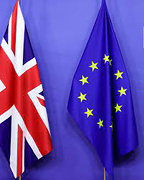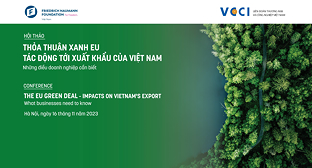Businesses struggle to prepare for post-Brexit import controls in UK
06/01/2022 10:12

Maurice Greig might have expected a well-deserved Christmas break, having spent 2021 grappling with the post-Brexit bureaucracy now needed to export his bespoke men’s accessories to the EU.
But instead, the 74-year-old owner of the Greig & Greig partnership has given up at least part of the holiday season in order to look into the UK government’s technical advice on new border controls on the way. be introduced on imports from the EU.
From January, UK importers must complete customs declarations in real time; pre-notify the authorities of incoming animal and plant products; and be able to produce proof that the goods they import from the EU enjoy duty-free access to the UK.
“It’s going to hurt my head,” said Greig in the warehouse of his London boutique, which is full of samples of handmade leather gloves, belts and umbrellas with fancy handles. “But I’m just a very small business, I don’t have anyone else to help me. ”
Business groups have warned that new import controls, which have been delayed for a year to keep trade flowing, will put significant new pressure on small businesses in 2022 as they continue to adapt. trade outside the EU single market.
Greig & Greig is among thousands of micro-businesses that the Federation of Small Businesses trade group says are insufficiently prepared for the new checks after a membership survey found only a quarter of businesses were ready.
A survey by the Institute of Directors, the employers’ organization whose members typically represent larger companies, found that a third were “not at all prepared” for the changes.
Business groups and officials admit that it is impossible to predict exactly how the changes will impact the flow of imports from the EU, which in 2020 accounted for 50% of all UK imports, from worth £ 300 billion.
Senior government officials responsible for the border told MPs in November that businesses are being contacted about the changes, including across the Channel, where EU carriers and exporters will also need to prepare.
The main source of concern about possible disruptions arises from the requirement for lorries entering the UK to obtain a UK Freight Services Authorization Code, or GVMS, before boarding. a ferry.
To get the code, their papers must be in order. From January 1, this means that customs declarations and payment of duties can no longer be deferred for up to 175 days, and animal and plant products must be pre-registered with the UK Product Import System, animals, food and feed (IPAFFS).
Jim Harra, permanent secretary of HM Revenue & Customs, told Public Accounts Committee MPs that “no doubt” some EU truck drivers will be turned away because of the new system, but he was “confident” that ‘they would adapt soon.
From July, food importers will also need their goods to be accompanied by health certificates signed by EU veterinarians and ready to undergo spot checks if selected at UK border checkpoints. .
Harra said the government’s confidence was based on carriers adjusting to a similar French pre-declaration system in 2021, when the reasonable worst-case scenario predictions of 7,000 truck losses. did not materialize.
Shane Brennan, managing director of the Cold Chain Federation, said the requirement to compile customs and IPAFFS declarations, often under tight deadlines, would likely leave many EU carriers “catching up” in the process. during the first months of 2022.
HMRC said it sent 14,000 letters per month to EU carriers to prepare them for the changes. However, transport groups in the EU told the Financial Times they expected delays because they were unable to pretest the GVMS system. The HMRC said it was “live proving” the system with selected organizations.
Artur Kalisiak, from TLP, which represents large Polish transport companies, said that while he was reporting UK government webinars to its members, 90 percent of Poland’s 36,000 transport companies were small operators with 10 vehicles or less.
“We are receiving information and reminders. . . and we pass that information on to our members, ”he said. “Our companies are therefore aware of this. How informed other companies are is another question.
Waberer’s, one of the largest transport groups in Eastern Europe, was more pessimistic, complaining that it had not been possible to pre-test the GVMS system before the launch date of January 1.
“We are sure there will be dead ends, as we do not know whether the UK system can handle the complaints that flood them,” a spokesperson said. “There will be a lot of distraught drivers backed up at transit points. “
In addition to the new border controls, UK companies trading with the EU will need to prove that their goods are eligible for duty-free import into the UK.
Under the so-called ‘rules of origin’ of the EU-UK Trade and Cooperation Agreement, goods generally have to be 50% made in the UK in order to be exported to the EU duty-free. of rights. And vice versa for EU goods exported to the UK.
In 2021, exporters on both sides were granted a one-year grace period that reduced the documentation required, but from 2022, companies on both sides of the Channel will need to provide documentary proof that their goods are compliant if they are disputed by the customs authorities.
In December, the HMRC told UK traders that if they did not provide “supplier declarations” for the goods, they risked paying penalties or being banned from using preferential tariffs in the future.
Trade groups warned ministers that for small businesses, the rules of origin process can be confusing and time consuming, with many not fully appreciating the requirements.
Danial Pettitt, CEO of Heaven Scent, says government guidelines are hard to follow. “You click link after link to go to a website. You get lost ‘© Jon Rowley / FT
Daniel Pettitt, managing director of Wiltshire-based Heaven Scent Incense, which makes scented soaps and candles using ingredients sourced from around the world, said he was grappling with the new rules.
“We are starting to ask suppliers for declarations and we know our products are eligible,” he said, but admitted he was not sure where the information proving this should be filed when. export to the EU.
He added that despite numerous emails from the government regarding the upcoming changes, the online tips were difficult to use. “It’s like falling into a rabbit hole. You click link after link to go to a website. You just get lost, ”he said.
Tanya Marriott, owner of SoleLution, an independent shoe store in Bristol that imports shoes from the EU, said the company is still trying to determine its legal position in the event of a rights dispute with EU suppliers .
“As a small business, we are trying to find our way. I tried to investigate through the HMRC website, and I don’t consider myself new to any of this, but it’s not explained in layman’s terms, ”she added.
Back in London, Greig of the men’s accessories importer, is still trying to sort out this year’s issues, including the erroneously billed duty payments on shipments that ‘come’ from the UK and the EU. .
“It’s going to be very complicated,” he says of importing his samples from the EU, “because I’m just a micro-business. I don’t know yet what the rules will be after January 1, but it will probably not be easy. “
UK customs measures in 2022 at EU borders: a timeline January 1, 2022
Complete Customs Declarations Import declarations to HMRC for goods from the EU can no longer be deferred for up to 175 days. UK businesses must complete import declarations in ‘real time’ when products enter the UK.
Pre-notification of food and plant products Businesses importing food products which require so-called sanitary and phytosanitary controls must enter them into the UK import system for products, animals, food and feed (IPAFFS). They still won’t need export health certificates or physical veterinary inspections on arrival.
EU carriers must be pre-authorized Truck drivers entering from the EU will need to prove that they have the above documents to obtain a pre-authorization code to get on the ferries. They will get it through the freight vehicle traffic service (GVMS).
Rules of origin requirements come into full force UK businesses seeking zero tariff access for EU imports will need to ensure that products from the EU are supported by declarations from the EU. suppliers demonstrating that the goods are sufficiently manufactured in the EU to qualify for duty-free access. And vice versa for European importers of British products.
Source: TP
Các tin khác
- More efforts needed to maintain export growth to China: Insiders (24/04/2024)
- Shadow trade minister calls for greater focus on removal of Chinese trade barriers (24/04/2024)
- New U.S. Solar Panel Tariff Intensifies Sino-American Green Tech War (24/04/2024)
- It is expected that there are higher orders and revenue in the second quarter from European businesses (24/04/2024)
- U.S. Ceramic Manufacturers Seeking Tariffs Against Indian Import (24/04/2024)
 Home
Home
 About Us
About Us




















